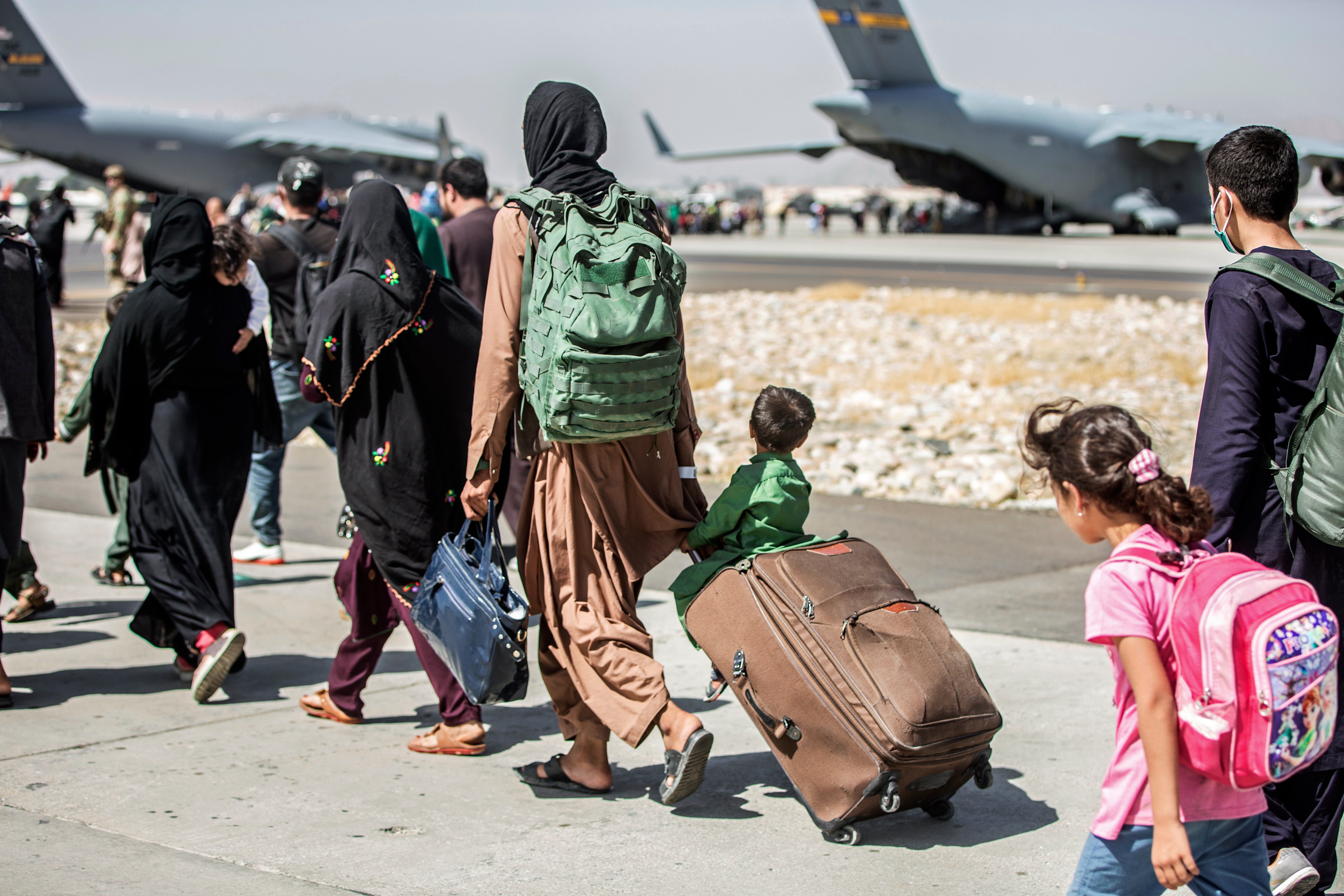Europe must do more to ensure that Afghan asylum seekers are not left in limbo
European governments should unequivocally cease all deportations of Afghan nationals to Afghanistan or to third countries considered ‘safe’

Your support helps us to tell the story
From reproductive rights to climate change to Big Tech, The Independent is on the ground when the story is developing. Whether it's investigating the financials of Elon Musk's pro-Trump PAC or producing our latest documentary, 'The A Word', which shines a light on the American women fighting for reproductive rights, we know how important it is to parse out the facts from the messaging.
At such a critical moment in US history, we need reporters on the ground. Your donation allows us to keep sending journalists to speak to both sides of the story.
The Independent is trusted by Americans across the entire political spectrum. And unlike many other quality news outlets, we choose not to lock Americans out of our reporting and analysis with paywalls. We believe quality journalism should be available to everyone, paid for by those who can afford it.
Your support makes all the difference.“I have no memories from Afghanistan, all of my life has been in exile.” Bahar’s lively eyes become darker as she narrates her refugee journey, which started 15 years ago.
Despite being an exceptionally bright student, fluent in English and Greek with a passion for maths, it’s unlikely Bahar (not her real name) will be allowed to attend a Greek university next year. She and her family have been stranded on the Greek island of Lesvos for three years, waiting for a positive asylum decision inside a refugee camp.
The Taliban’s takeover of Afghanistan aggravates the uncertainty that many Afghan asylum seekers in Europe face. Families like Bahar’s live with the fear of return to Afghanistan while waiting for their cases to be decided.
Bahar was just three years old when her parents left Herat, northern Afghanistan. Like the majority of Afghans fleeing their country, her family first settled in a neighbouring country – Iran. After years of exile and precarity without receiving refugee status, they made the long and perilous journey to Europe; a place where the fundamental right to asylum seems only to be protected on paper.
Despite the risks that Bahar and her family face in their home country, the Greek asylum service has twice rejected their application for refugee status. Instead, they have been ordered to return to Turkey as a “safe third country” with risk of onward deportation to Afghanistan.
Thousands of Afghans in other European countries live in a similar limbo: as of May 2021, 32,250 cases of Afghan asylum applicants were pending in Germany alone. In France, 18,515 people were waiting on a decision, while in Greece the numbers were 15,675. Such numbers should be manageable given the size of European states and their functioning asylum systems but, in total, Europe hosts less than 10 per cent of the 2.5 million UN-registered, displaced Afghans globally.
Neighbouring countries carry the burden of Afghan displacement, with Iran hosting almost 1 million Afghan refugees and Pakistan taking in 1.5 million. These numbers double when adding undocumented or Afghan passport holders.
While 56 per cent of Afghans in Europe receive protection status, a large proportion remains in limbo in various European asylum systems. Authorities often leave people waiting for months or years to receive an asylum decision, and governments can insist on deporting unsuccessful applicants back to Afghanistan.
Only after the Taliban’s takeover of Kabul, did some governments halt deportations. Others still maintain deportation policies at the time of writing – such as Austria, which has even suggested setting up “deportation centres” in countries neighbouring Afghanistan.
While European countries joined the international community in pledging support for the departure of foreign nationals and Afghans who want to leave, their unwillingness to provide refuge to Afghans residing in their territory shows that European governments fall far short of their promises.
In practice, the opposite seems to be the case as European countries securitise their responses and shut external borders – Greece’s metal wall at its border with Turkey clearly shows this hardline stance.
Following the Taliban takeover, French president Emmanuel Macron called for Europe to protect itself from “irregular migratory flows” from Afghanistan. Similarly, Charles Michel, the president of the European Council, and EU home affairs chief Ylva Johansson confirmed securing European borders was a priority. Preventing people from reaching Europe seems to trump humanitarianism and the right to asylum.
This disconnect is not new. Reports of illegal pushbacks on European land and sea borders alarmingly intensified in 2020, as authorities sent migrants back to neighbouring countries without assessing asylum claims.
At the EU level, aid to countries such as Afghanistan has been dependent on their governments’ adherence to the bloc’s migration objectives: preventing asylum seekers from reaching European borders and facilitating the repatriation of people refused asylum in Europe.
Right now, European authorities need to act fast to improve the treatment of Afghans in limbo. “I feel hopeless waiting in this camp for almost three years now. I want to get out, go to university, and start a normal life,” said Bahar, stranded on Lesvos, waiting for her future to start.
European governments should cease all deportations of Afghan nationals to Afghanistan or to third countries considered “safe” now. They should expedite pending Afghan asylum and family reunification cases, while re-examining rejected asylum applications, given what’s happened in Afghanistan. Appropriate funding also needs to be put in place to support integration.
Now more than ever, amid the chaotic US and Nato military retreat from Afghanistan, European countries must do more to ensure Afghan asylum seekers are not left in limbo.
Anna Iasmi Vallianatou is a Stavros Niarchos Foundation Academy Fellow and Emily Venturi is a Schwarzman Academy Fellow, both at Chatham House
Join our commenting forum
Join thought-provoking conversations, follow other Independent readers and see their replies
Comments